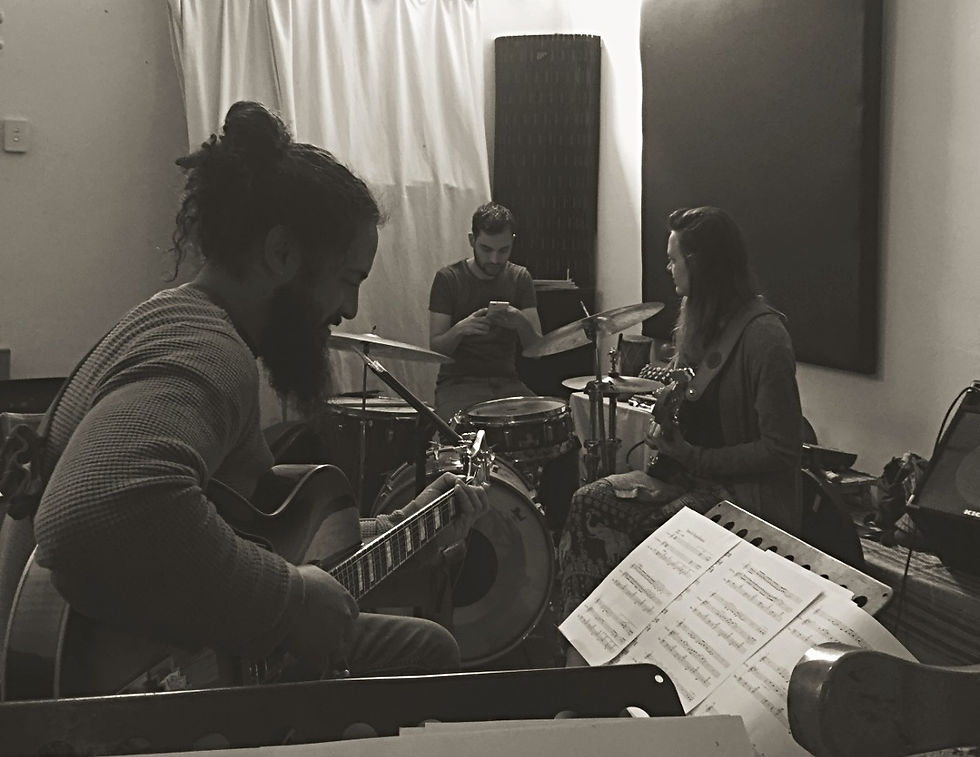Ancestral Debt
- Muhammad Dawjee
- Jul 16, 2020
- 4 min read
Updated: Aug 6, 2020

It was a bone dry autumn morning. Leaves had already started to fall and the rain had left the skies for good. As I awaited my task I felt overwhelmed by the power of the unfolding moment. It was an ungrounding and unhinging of all that was normal. We were still in the days of level 5 restrictions (before there were even known to be any other levels of lockdown) and I was in the process of laying, my greatest fan, my father to rest.
This moment – which I paused upon then and revisit almost daily now was the most prolific moment I’ve ever experienced. I stood at the head of the grave, shoulder to shoulder with my uncle and barefoot in the empty grave prepared only that morning for my pops with great effort and jackhammers. It started to become clearer that, not only that I was fulfilling my responsibility to my father in performing this act, but also that my service here on earth is in a way a service to humanity at large – something which I’d not been as critically aware of till then. As I reached my arms toward the sky, to receive his deceptively light body, the weight of this thought descended upon me and I knew immediately that something else was being handed down at that moment.
We are conditioned into a common capitalist understanding of debt which necessitates payment. That we are to constantly service our debts or face the consequences of being blacklisted or ‘written off’. Debt maintenance holds us within the illusion of certainty through its insistence on transactional value i.e. that one can owe, that one can be owed or that one can be cleared of debt.
Our concept of debt is taxed with a capitalist and materialist understanding of the world and when we become conscious of our existence, we extend this definition to debts held by ourselves and unto others, when in fact, to exist at all is really to be born into debt. Life and existence do not belong to us, but to all of humanity to which we belong and to ignore this – or to desperately try and clear ourselves of it, is to rob ourselves of what might be the core of our critical agency.
The condition of capitalist debt is felt on both sides of its containment and the maintenance of relations. To be in debt is to be obligated and beholden to your creditor. To be deluded by debt management and the idea that debt can be somehow paid off is to submit to a capitalist worldview and to allow that to operate at the level of the spiritual.
Capitalist debt has been historically stratified, distributed, and managed to ensure that some are always in service and that their condition of servitude is inescapable and particularly directed towards a master. The truth behind this veil of ‘debt management’, that only some owe and others are owed, is that in the practice of conscious living we realise that we all owe something to ourselves and to one another and that our agency is in our enduring servitude. To recognize this is to liberate our servitude from ‘debt management’ and its manipulation and coercion in ways that do not serve us.
Ancestral debt is beyond and above these meagre definitions of materialist pursuits. It is the debt that is our lives. It is the debt whose unending service is always unfolding and in process. Through action, we are in constant service of this ancestral debt.
When we die, we are automatically immortalised by this service. Our service serves as a legacy and reminder of our existence for eternity, consciously recorded through histories and, if we’re lucky, through myths and memories. Ancestral debt is a hereditary passing on of our service. We owe our existence to generations passed and generations still to come. It is a reminder of the work that is still needed and of our crucial place in a chain of causation that extends through time.
For me, this is an ongoing search for knowledge and growth in the pursuit of love and balance. It is the practices that sustain and nurture without extraction and exploitation. It means that the debt with which I had entered the world and its entire ancestry become vehicles for the meaning of existence itself through a service that only I can become fully aware of and enact through action and critical reflection. It means accountability, responsibility, and focus. It is a gift and a steady reminder.
This view of debt is not an invitation to dismiss the urgency of reparation in the ongoing struggle against historical inequity through the manipulation of service for self-enrichment. It is not to give the oppressor (in me) a free pass. It is not a turning of the cheek. It does, however, make me aware of the locus of my agency in this fight. It is a reminder of where to turn my face and bow my head.
My hands were tired, not from the weight of his body, which he had lost so much of by the time he said his final goodbyes to us, not from the effort of closing him into the darkness, not from the red walls that I gripped onto as I heaved myself out of the earth and back into the light or from the cold shovel that I urgently grasped onto; my hands were tired from their past actions and their idleness. As I heaved the final shovel onto the already completed mound, almost to be certain that his burial was complete, the weight of all that he was and was not, became my own.






Comments